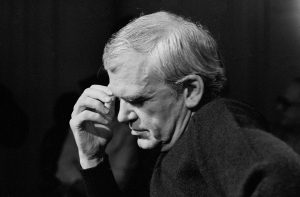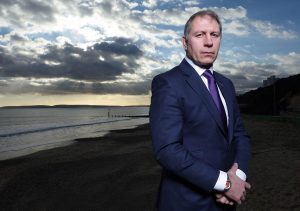Sri Lanka’s largest opposition party rejected the president’s invitation to form a unity government, as protests continued Monday over the country’s worst economic crisis in memory and deepening mistrust in his leadership.
All 26 Cabinet ministers handed in their resignations Sunday night after thousands of people defied a state of emergency and curfew and joined street protests denouncing the government.
A Monday statement from the office of President Gotabaya Rajapaksa, who assumed emergency powers by decree at midnight Friday, said he “invites all political parties represented in the Parliament to come together to accept ministerial portfolios in order to find solutions to this national crisis.”
Also Read: India ships food aid to Sri Lanka as unrest in Colombo worsens
The largest opposition political party, the United People’s Force, or SJB, immediately rejected the unity government proposal.
“The people of this country want Gotabaya and the entire Rajapaksa family to go and we can’t go against the people’s will and we can’t work alongside the corrupt,” top SJB official Ranjth Madduma Banadara told The Associated Press.
SJB has 54 lawmakers in the 225-member Parliament. Its rejection of the president’s request is likely to result in continued uncertainty and protests, which were held throughout the country on Monday. A countrywide curfew was lifted Monday morning.
The president and his older brother, Prime Minister Mahinda Rajapaksa, continued to hold onto power, despite their politically powerful family being the focus of public ire.
Two other brothers, Finance Minister Basil Rajapaksa and Irrigation Minister Chamal Rajapaksa, were among those who resigned, along with the prime minister’s son, Sports Minister Namal Rajapaksa. Those resignations were seen as the family’s effort to pacify public anger while retaining executive, defense and lawmaking powers.
The Central Bank’s top official, accused of economic mismanagement, also resigned Monday.
For several months, Sri Lankans have endured long lines to buy fuel, cooking gas, foods and medicine, most of which come from abroad and are paid for in hard currency. The fuel shortage has caused rolling power cuts lasting several hours a day.
The extent of the crisis became clear when Sri Lanka couldn’t pay for imports of basic supplies because of its huge debts and dwindling foreign reserves. The country’s usable foreign reserves are said to be less than $400 million, according to experts, and it has nearly $7 billion in foreign debt obligations for this year alone.
Meanwhile, a key ally of the president’s ruling coalition withdrew support Monday, weakening his control in Parliament.
The Sri Lanka Freedom Party — which comprised 14 out of the nearly 150 members of the ruling coalition — will act independently starting Tuesday, when the Parliament meets, party official Mahinda Amaraweera told reporters.
Police used a water cannon to disperse angry protesters who marched toward the Rajapaksa family home in southern Sri Lanka, demanding that they quit. Demonstrators shouting slogans also surrounded the homes of the resigning ministers and ruling party lawmakers in several parts of the country.
Rajapaksa’s emergency declaration gives him wide powers to protect public order, suppress mutinies, riots or civil disturbances or for the maintenance of essential supplies. Under the decree, the president can authorize detentions, seizure of property and search of premises. He can also change or suspend any law except the constitution.
The president on Monday swore in four temporary Cabinet ministers to continue the main governmental functions of foreign affairs and finance, and to help lead the ruling party’s parliamentary group.
Sri Lankans, including professionals, students and families with small children, defied the emergency decree and curfew on Sunday to demand the president’s resignation.
Also Read: Fuel-filled ship reaches Sri Lankan coast, brings relief to crisis-hit island
“In this country it is so difficult,” said Inoma Fazil, a fashion designer who brought her 18-month-old daughter to a protest in the Colombo suburb of Rajagiriya on Sunday. “We don’t want to leave the country and go, and we want to give our child a good future, but everyone is stealing our money. So we came here for her and the rest of the children.”
Two new parents joined the rally directly from the hospital with their newborn. They were greeted with cheers by the protesters, who sang the national anthem and waved flags and placards.
For nearly 15 hours, authorities blocked access to Facebook, Twitter, YouTube, WhatsApp and other social media platforms used to organize the protests.
Rajapaksa last month said his government was in talks with the International Monetary Fund and had turned to China and India for loans, and appealed to people to limit their use of fuel and electricity and “extend their support to the country.”






